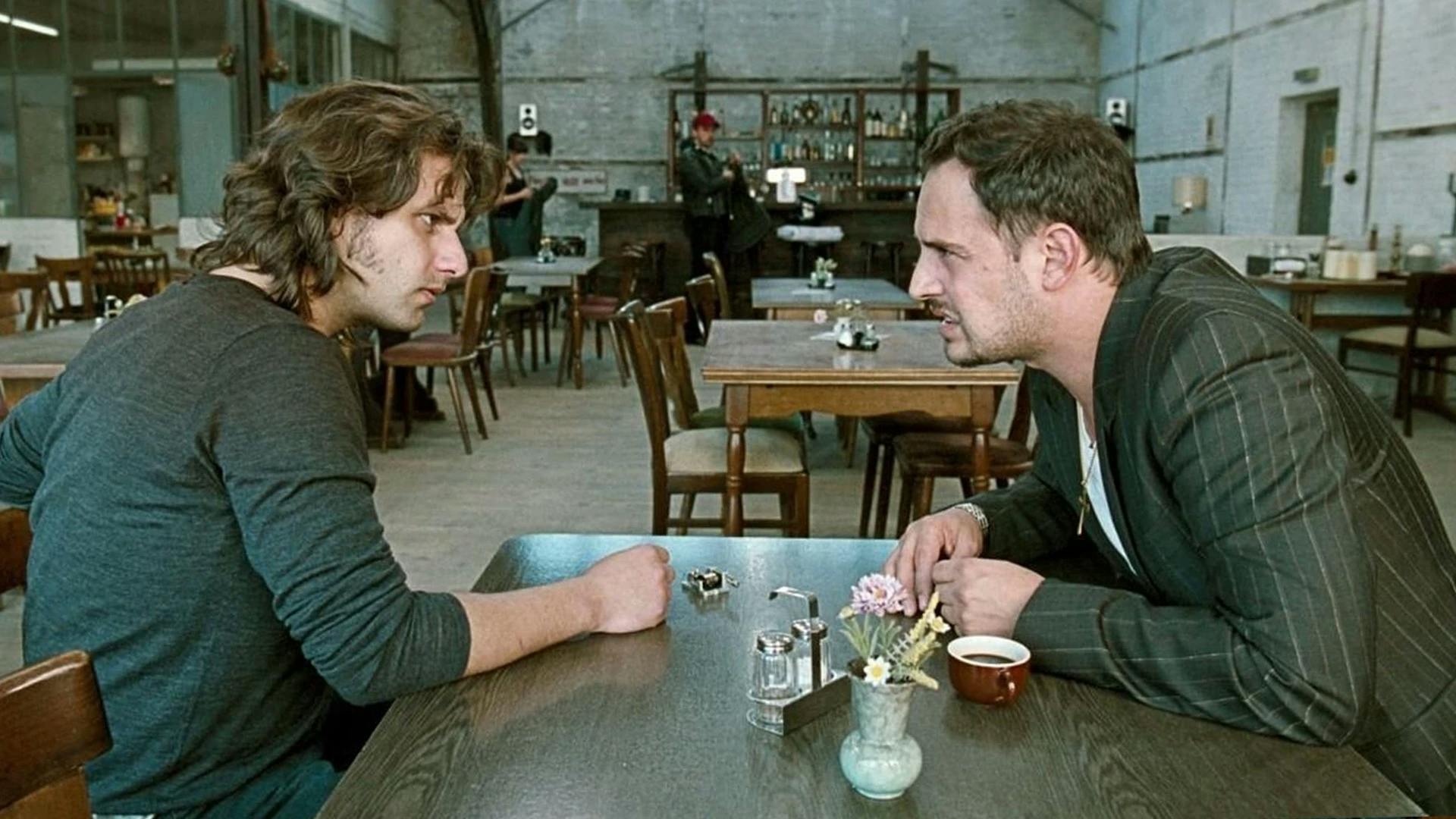How Fatih Akin's 'Soul Kitchen' revolutionized the German film scene
'Soul Kitchen' stands as a milestone of 21st century German cinema. The film not only shaped the German film landscape in 2009, but also set new standards for the comedy genre. This story of a Hamburg restaurant quickly developed into one of the most significant German films of its time.
Director Fatih Akin created a unique work with 'Soul Kitchen' that combines technical innovation with cultural diversity. The film is characterized by its extraordinary cast and its authentic view of modern Hamburg. These elements contributed significantly to Soul Kitchen becoming a groundbreaking project in German film history.
The Story Behind the Making of 'Soul Kitchen'
The story of Soul Kitchen actually began in 2003/2004, when Fatih Akin originally conceived the project as a follow-up to Head-On. The creative process got off to a surprising start: Akin was experimenting with a new text program and wrote without a specific vision. He found inspiration in the personal crisis of his friend Adam Bousdoukos, who was mastering both private and professional challenges at the time.
After the success of Head-On, Akin initially put the project on hold – a “snotty comedy” no longer seemed to meet the high expectations. It was only the death of his production partner Andreas Thiel that led to a change in thinking. Thiel's encouragement “Who gives a shit what people say” became the leitmotif of the project's resumption.
The two-year production phase was crowned by significant successes:
- Special Jury Prize at the 66th Venice Film Festival
- Art Cinema Award at the Hamburg Film Festival 2009
- North German Film Prize 2009 for Best Screenplay
It is also worth noting that lead actor Moritz Bleibtreu even turned down a role in Quentin Tarantino's Inglourious Basterds for Soul Kitchen – a sign of the project's special significance.
Discover the Films of Fatih Akin on Sooner.de!
Soul Kitchen
Zinos, the owner of a bar, has been unlucky: first his girlfriend Nadine moves to Shanghai for a new job, then he suffers a herniated disc. When he desperately hires the eccentric top chef Shayn, even his few regular guests stop coming. And as if that weren't enough, his slightly criminal brother Illias turns up and asks him for help.

The Cut
1915: The Armenian Nazaret lives a happy life with his wife and daughters in Mardin. Until one night, Turkish troops drag him out of his house and force him to work on road construction. The situation escalates. He and his fellow prisoners have their throats slit. But Nazaret survives, manages to escape, and finds only dying people in a camp in the desert.

The Key to Success: The Cast
The extraordinary cast proved to be one of the most important factors in the success of Soul Kitchen. Fatih Akin relied on a proven ensemble from his earlier productions, which his film company aptly described as a “best-of cast”.
Familiar faces were cast in the central roles:
- Moritz Bleibtreu (In July, Solino) as Illias Kazantsakis
- Birol Ünel (Head-On) as the eccentric chef Shayn
- Adam Bousdoukos (Short Sharp Shock) as Zinos
The actors' intensive preparation for their roles was particularly noteworthy. Birol Ünel received special coaching from top chef Ali Güngörmüs and expert Joern Martens for his portrayal of the head chef. This attention to detail was reflected in the authenticity of the performance.
The chemistry between the actors also convinced the critics. The audience in Venice was thrilled by the comically touching atmosphere, which was largely created by the harmonious interaction of the actors. Anna Bederke as Lucia and Pheline Roggan as Nadine perfectly rounded off the ensemble and contributed to the lively atmosphere of the film.
The Technical Innovations of the Movie
Technical brilliance characterizes Fatih Akin's work in Soul Kitchen in various aspects. The director used innovative shooting techniques to capture the authentic Hamburg off the beaten track. A prime example of this is the creative use of the museum ship Rickmer Rickmers, which simulates a journey from Beirut to Cuba in the film – without ever leaving the port of Hamburg.
The film's background music became a technical masterpiece in its own right. The soundtrack was a remarkable success:
- No. 2 in the German album charts
- Top-3 placement in the Greek charts
- Innovative blend of soul classics and multicultural sounds
Particularly noteworthy was Akin's technical approach to comedy, which he himself described as “the highest discipline”. The culinary scenes were inspired by Isabel Allende's cookbook “Aphrodite”, which led to a unique visual representation of the dishes. The technical realization of these sequences contributed significantly to the authentic atmosphere of the film.
The visual language of the film shows a Hamburg far removed from the usual glossy shots. Akin deliberately chose locations in Wilhelmsburg and on the Veddel, which he staged with his characteristic handwriting. This technical approach created a unique fusion of realism and artistic vision.
The Social Influence of 'Soul Kitchen'
As a cultural phenomenon, Soul Kitchen developed into an important commentary on urban and social change. The film addresses the gentrification in Hamburg-Wilhelmsburg and has been described by critics as a modern “Heimatfilm” – a contemporary interpretation of a classic German genre.
- Fatih Akin used the story of Soul Kitchen as a metaphor for the struggle for cultural identity in a changing city. The film impressively shows the transformation of a working-class neighborhood:
- From a simple snack bar to a hip restaurant
- From a working-class neighborhood to an object of speculation
- From a local community to an urban trend destination
Particularly noteworthy is Akin's portrayal of modern Hamburg as a multicultural melting pot. The director consciously campaigned for the preservation of historical districts, such as the Gängeviertel, and used his film as a platform for cultural activism. The story of Soul Kitchen thus became a symbol of resistance to the dissolution of established urban structures.
The film developed into a tragicomic declaration of love for Hamburg and its inhabitants. It addresses the meaning of “home” in an increasingly globalized world and shows how important social spaces can serve as a protective zone for those who lose out to modernization.
Conclusion
Soul Kitchen stands as a stunning example of how German cinema can masterfully blend cultural diversity, technical innovation, and authentic storytelling. Not only does the film present a vibrant portrait of modern Hamburg, but it also tells a universal story about home, identity, and societal change. Fatih Akin's skillful direction, coupled with the extraordinary ensemble cast and technical brilliance, created a work that left a lasting impact on the German film landscape.
This unique blend of comedy and social observation makes Soul Kitchen a timeless document of urban transformation and cultural evolution. The film continues to inspire new generations of filmmakers and audiences alike – watch Soul Kitchen by Fatih Akin on Sooner.de! Its significance as a milestone of German cinema remains indisputable, while its message of community, change, and the value of cultural spaces seems more relevant than ever.